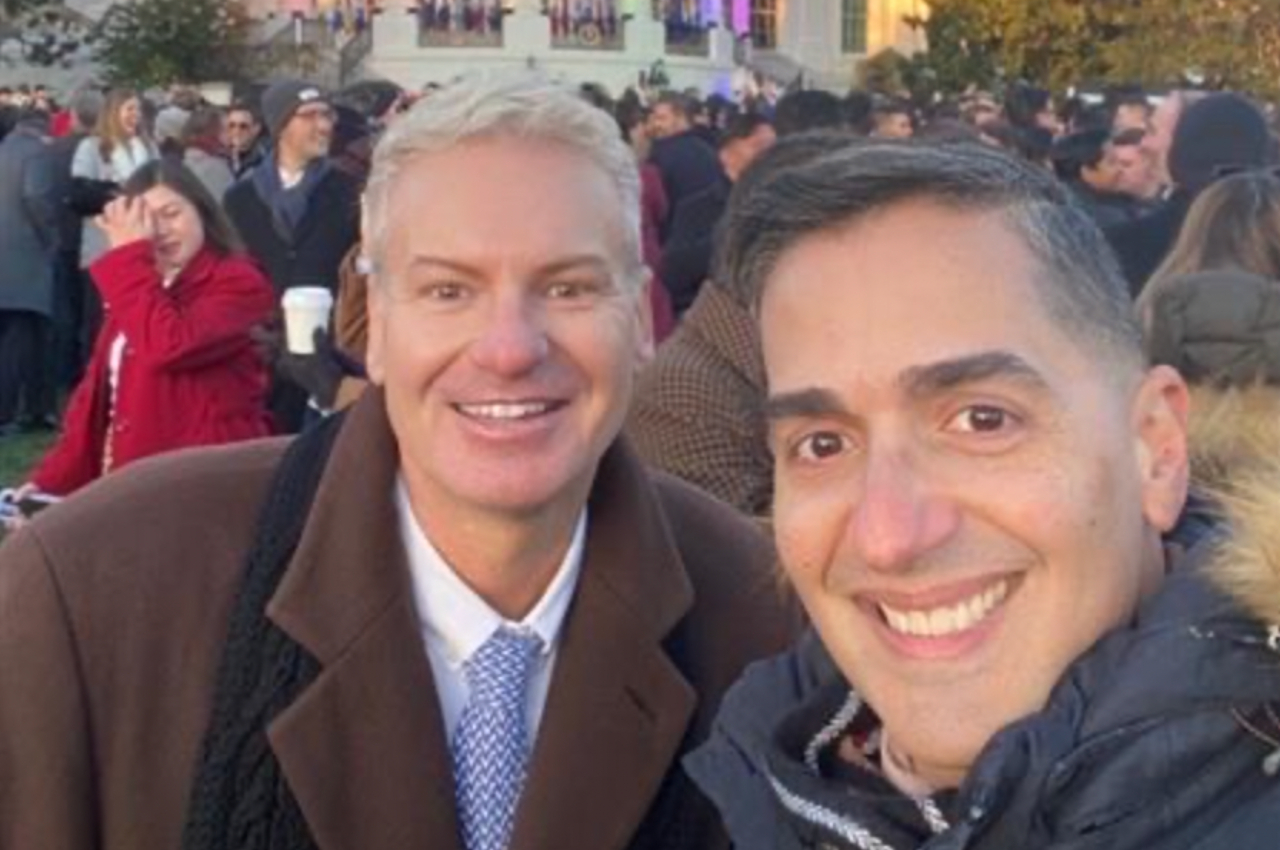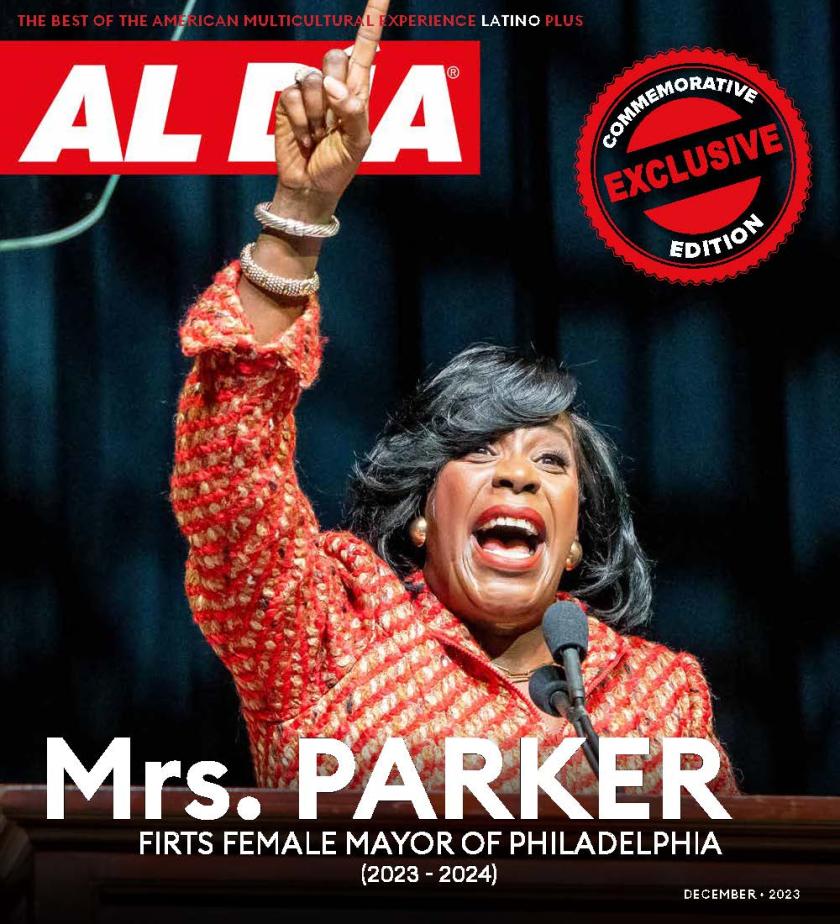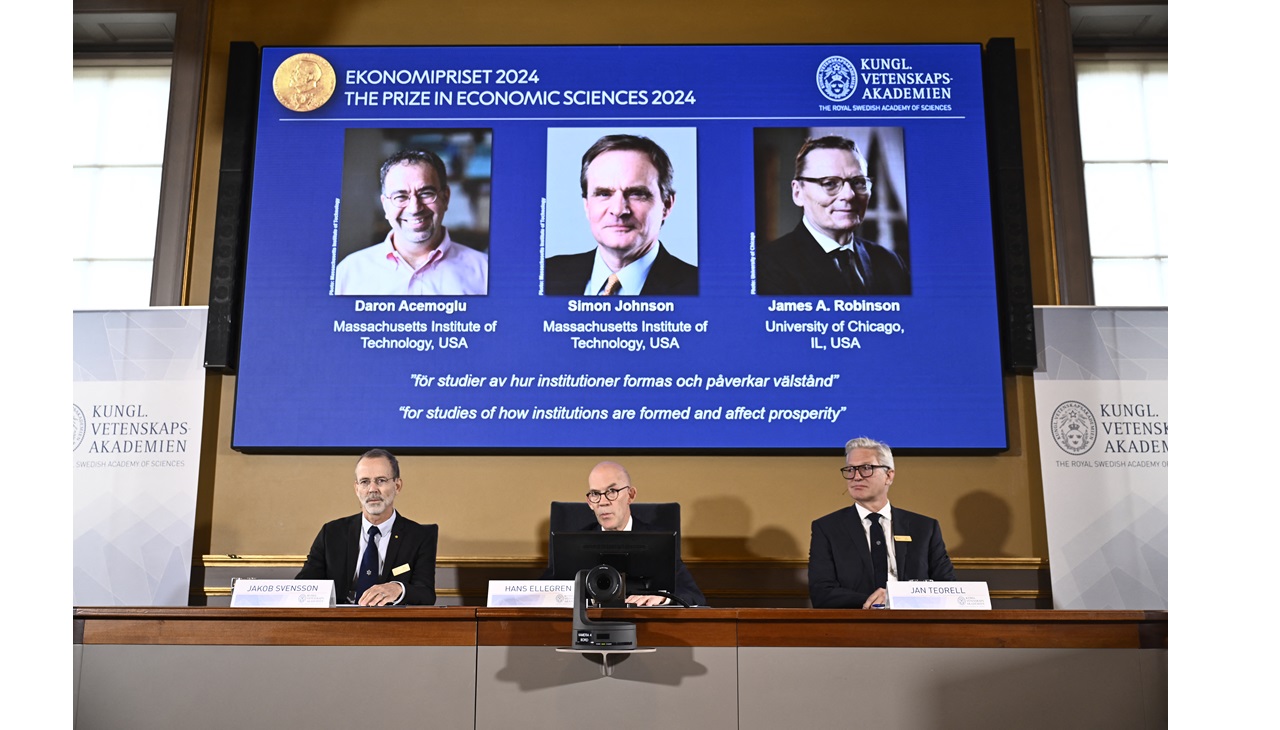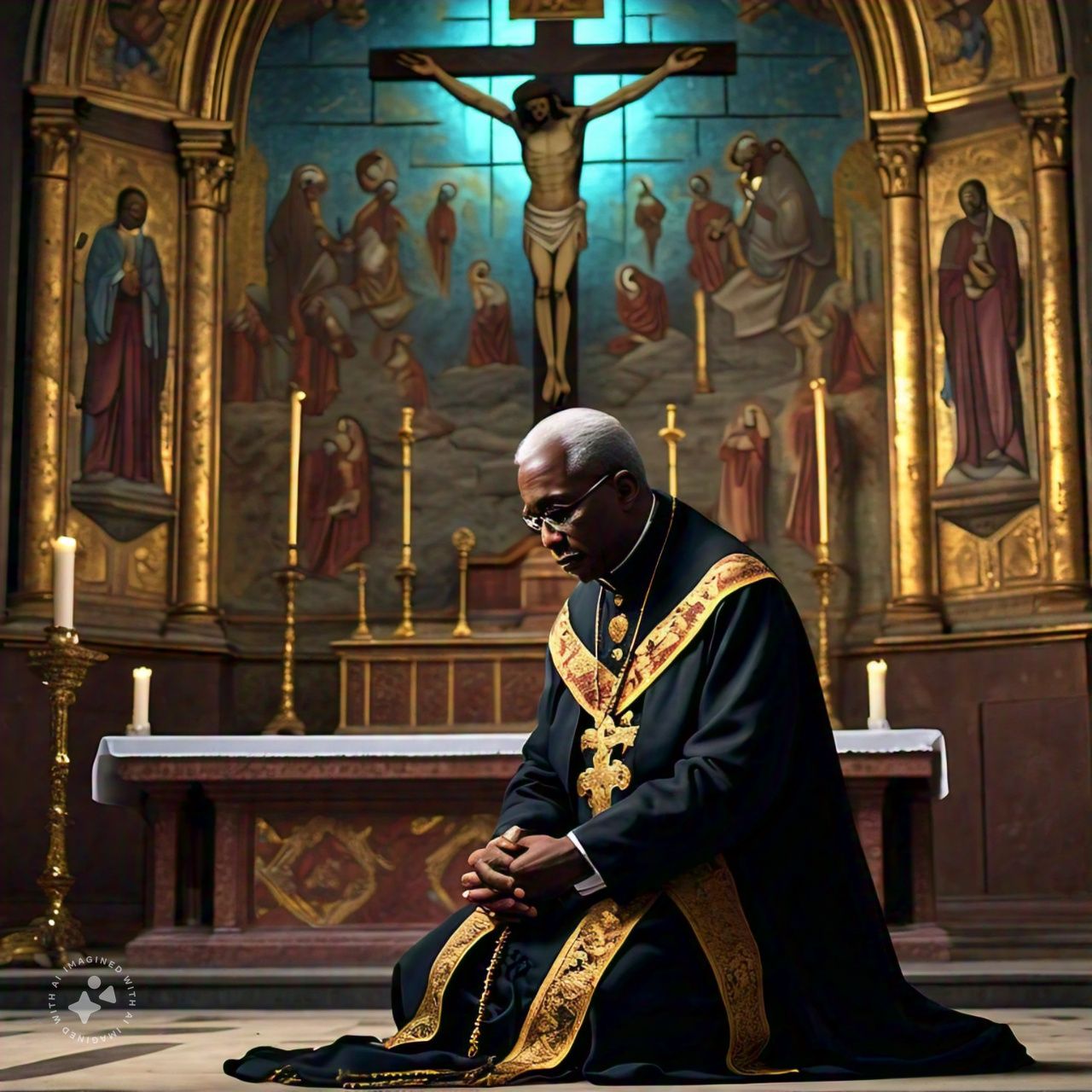
Hispanic Federation president and CEO celebrates the signing of the Respect for Marriage Act
Frankie Miranda became the organization’s first openly gay president and CEO when he took office in 2019.
On Dec. 13, Frankie Miranda and his husband, Ricardo, watched President Joe Biden sign the Respect for Marriage Act on the South Lawn. Miranda is the first openly gay president and CEO of the Hispanic Federation. He recently spoke with AL DÍA News about the bill, his personal marriage equality story, and the shift in how LGBTQ+ people are viewed.
“In 2003, we never thought that two decades later we were going to be welcomed at the White House to be recognized in front of the eyes of the world that we were a legitimate couple,” said Miranda.
The Respect for Marriage Act codifies interracial and same-sex marriage and guarantees that those couples will receive the same federal benefits as other married couples.
For Miranda and his husband, having access to marriage and these benefits would have changed the course of their relationship.
The two met and began a relationship in 2000. In 2003, they were separated when Miranda’s partner, who is originally from Brazil, had to go back. He was also banned from the U.S. for 10 years for overstaying his visa. At the time, there were no federal protections for same-sex couples, which meant that Miranda wasn’t able to get his partner a fiancee visa that would have allowed him to stay in the U.S.
They stayed together as an international couple until 2014. The year before, the Supreme Court ruled in Windsor v. United States that it was unconditional to deny same-sex couples the same federal benefits as other couples. With that ruling, Miranda was able to get his partner a fiancee visa and they were married on April 4, 2014.
Even though they are legally married and his husband has since become a citizen, Miranda says that the Respect for Marriage Act is another layer of security.
The codifying of marriage equality is a great step towards equal rights for LGBTQ+ people. However, it’s just one step.
“So there’s a series of protections and the false sense of security for the general population is like “well we have marriage equality, we reached now the benchmark, we don’t need to worry anymore about this community,” explained Miranda.
He went on to explain that there has been a trend of anti-trans and anti-gay laws. This includes Florida’s “Don’t Say Gay” bill and the bills in multiple states that target transgender youth.
“So that is why it is important that we continue now,this as a stepping stone and go for the Equality Act that will prevent discrimination in housing, prohibit establishments from discriminating against LGBTQ people, preventing healthcare providers from refusing to treat transgender people and other basic needs.” he stated.
When responding to criticism some people have shared that the bill doesn’t go far enough, Miranda reiterated that he believes this is a stepping stone and its passing moves the needle on LGBTQ+ rights. He also thinks it was a huge accomplishment since it got bipartisan support despite how divided the country is.
“So I have to say that I am very happy with what we have accomplished so far, as long as we recognize that there’s still work to do,” said Miranda.
Progress towards these goals has happened alongside shifting views of LGBTQ+ people. You don’t need to look any further than President Biden to see that. In the 1990s, he voted for anti-LGBTQ+ legislation, including the Defense of Marriage Act (DOMA). In 2012, he stated his support for same-sex marriage on national TV, and in signing the Respect for Marriage Act he repeals DOMA.
Miranda believes that the Latinx community has made this same shift with the rest of the country.
RELATED CONTENT
“I think that there was a false narrative saying that Latinos, the Latinx community, is not pro-LGBTQ,” he said.
“This is about love, and having people in our communities being together and being able to continue having this extended network of care. Once you talk about this in the right, culturally competent, linguistically competent way, in our community, you see that the actual opinion, the real opinion of members of our community, [you] are seeing support of LGBTQ rights and LGBTQ couples,” Miranda added.
The reason he thinks that views overall are shifting is representation.
Miranda explained, “It is about more people like me, coming into forums, and speaking about our stories…I think it’s about representation, it’s about talking about our stories, normalizing it, making sure that people understand.”
When speaking at a recent event on digital skills in the Latinx community, Miranda introduced himself as the first gay president and CEO of the Hispanic Federation. He said that after the event, several young people came up to him and thanked him for saying that as just another part of his credentials.
He noted that there are a lot more young people who are identifying as LGBTQ+, and a lot more who feel like they can express themselves freely at an earlier age. He points out that more people coming out affects not only the conversation among LGBTQ+ community, but those members of the community interact with.
“More and more people can identify somebody from the LGBTQ community that they know. Somebody in their family, that they have [as] close friends are from the LGBTQ community… it’s all about representation and visibility,” he said.
Miranda described the signing event at the White House as “surreal” and as very important to him, his husband, and the community overall.
“It was a moment of happiness. It was a moment of a lot of joy.”











LEAVE A COMMENT:
Join the discussion! Leave a comment.